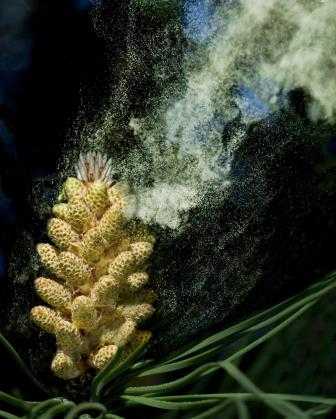 For many people the arrival of sun is a chance to kick back, relax, put on the shorts and get out into the great outdoors. But for many it is the season of streaming noses and itchy eyes as hay fever season arrives. In fact as an allergy it is on the increase; it is thought that 1 in 4 people in the UK suffer compared with 1 in 8 in the 1980’s.
For many people the arrival of sun is a chance to kick back, relax, put on the shorts and get out into the great outdoors. But for many it is the season of streaming noses and itchy eyes as hay fever season arrives. In fact as an allergy it is on the increase; it is thought that 1 in 4 people in the UK suffer compared with 1 in 8 in the 1980’s.
Despite the name hay fever, hay is not the route cause of the problem – pollen from Birch Trees and other tree varieties such as hazel, oak, horse chestnut, sycamore, yew and willow to name are few cause symptoms during March & April. More common is summer hay fever created by grass pollen that peaks in June & July. Weed allergies can also happen in July and spores from moulds are around during August & September.
Pollen counts are usually high on dry, warm sunny days. Pollen is released in the morning and as the air heats up it is carried into the atmosphere. So pollen counts are highest in mid morning and late afternoon. Weather reports usually give pollen counts at this time of year – 50 grains per cubic meter will usually cause symptoms.
In order to find a remedy for your hay fever it helps to work out what type you have – tree / grass or if unlucky both! Some simple solutions are available albeit not always practical:
If the pollen count is unusually high – stay indoors, with the windows and doors closed.
Pollen filters in cars can help – get them changed regularly at service intervals and if your symptoms are really bad consider having them installed at home.
When you venture out, wear sunglasses that wrap around – so as to prevent pollen getting in your eyes. A simple solution for your nose is to line your nostrils with Vaseline or similar which helps to trap the pollen before you inhale it.
Showering when you get back to wash away pollen from your hair and body can help as well as washing clothes and bed linen.
If all of these measures do nothing to prevent / help your symptoms then it may be time for a trip to your GP or pharmacist. Many medicines that were prescription only medicines a few years back are now widely available in pharmacies. These come into several categories – antihistamines; generally taken as a table once per day, eye drops and nasal sprays. Many of these medicines need to be taken in advance of symptoms; their effectiveness is increased if allowed to build up.
If however you would prefer to approach a nature problem with a natural remedy then you could try the following:
Spirulina – A super food that may help to reduce the severity of runny noses and itchy eyes associated with hay fever.
Probiotics – Eating probiotic yoghurts may boost immunity and reduce the severity of pollen allergies.
Quercetin – An antioxidant found in apples and red onions may prevent immune cells releasing histamine that causes allergic reactions in the body.
Tweet